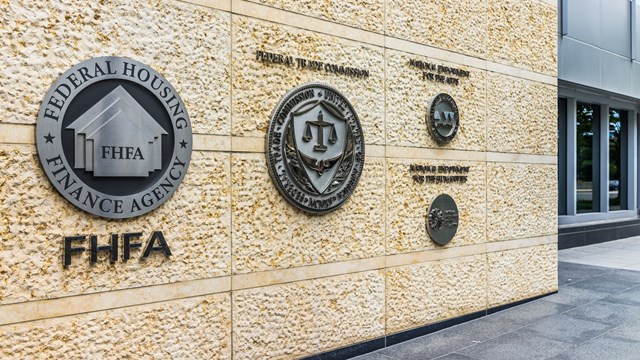
Perhaps one of the most difficult aspects of the recent recession was the sudden evaporation of credit from major banks and lending institutions. The logic behind it was understandable: too much easy credit had led, in part, to the collapse that stunned the nation and then the world in 2008. Although some housing markets were less affected than others (Florida and Nevada have been especially hard-hit) everyone still felt the shifts. Among the repercussions was a new set of regulations issued by the Federal Housing Administration (FHA) in February 2010 which created a number of requirements for any building that wished to accept FHA-backed mortgage loans.
“The FHA eliminated spot loans by mortgage letter 2009-46B on February 1, 2009,” states attorney Jennifer A. Loheac, Esq., a partner and a member of the Co-op and Condominium Practice Group at the Morristown law firm of Becker & Poliakoff. “What this meant is that homeowners seeking to purchase in condominium communities were no longer eligible for financing backed by FHA unless the entire condominium project was approved,” she said. “This has tremendous consequences for most purchasers because most lenders only make loans that are attractive to a secondary market to spread the risk. Also, conventional mortgages typically require 20 percent down and solid credit history. Where a prospective buyer is a first-time homeowner, a young person with school loans or a senior without a cash flow, this is a challenging threshold to meet. With FHA, there's only usually a 3 percent down payment required.”
These new requirements can be quite problematic, echoes Lauren Peddinghaus, CMCA of Haus Financial Services LLC in Chicago. Associations must keep 10 percent of their annual budgets earmarked for reserves, she said. “Some associations, particularly the smaller ones, do not produce an annual budget, let alone allocate funds for reserves. These associations have to implement a budget that meets the requirements before they can become FHA certified.”
A Bit of Banking Background
The Federal Housing Administration was born during the Great Depression, created by Congress in 1934 and absorbed by the Department of Housing and Urban Development’s Office of Housing in 1965. The main purpose of the FHA is to provide mortgage insurance on loans made by FHA-approved lenders throughout the United States and its territories. The FHA insures mortgages on single family and multifamily homes, including condominium communities. According to the FHA website, it is the largest insurer of mortgages in the world, insuring more than 34 million properties since its inception. That number currently includes 4.8 million insured single family mortgages and 13,000 insured multifamily projects.
As the FHA website explains, “FHA mortgage insurance provides lenders with protection against losses as the result of homeowners defaulting on their mortgage loans. The lenders bear less risk because FHA will pay a claim to the lender in the event of a homeowner’s default. Loans must meet certain requirements established by FHA to qualify for insurance.”
A Change in the Process
As the list of regulations grew, one particular requirement that has had a definite effect on condos nationwide is a regulation relating to a building’s reserve fund. “The guideline is that a condo development must have 10 percent of its yearly budget set aside for reserves,” says Orest Tomaselli, CEO of National Condo Advisors, LLC, based in White Plains, New York, a company which offers condominium project loan approval and reserve analysis services.
According to Robert Kaye, a managing member of the Pompano Beach, Florida-based law firm of Kaye & Bender, PL which represents over 700 community associations across the country, “The FHA regulations are adopted by the Department of Housing and Urban Development (HUD). The current regulations were adopted in 2009 and were phased in during 2010. Due to the constricting availability of mortgage funding after the housing slump began, the revisions made to the FHA regulations were intended to enhance the availability of financing for qualified properties.” Eliminating the spot approval provisions, said Kaye, meant that “FHA financing became available in only certified communities.”
Because each condo development is different, the requirement impacts different communities in unique ways. For some, 10 percent might be an affordable amount—in fact, they may already have been putting away more than that for previously determined projects. For other developments, though, 10 percent might be a much higher amount than they need. “The issue is that 10 percent is an arbitrary number.” Tomaselli explains. “Sometimes it’s too much for a development to set aside, and sometimes it’s way too little.”
The FHA has recognized that this might be the case in some situations. With that in mind, the administration and HUD “have stated that you can provide a reserve study and have an engineer on site to literally review and inspect every common area, every roof, etc.” to determine what repairs and replacements will be needed in the coming years. The reserve study will help the board determine that if a new boiler is going to be needed in eight years, then the community must set aside ‘x’ amount of dollars of that time period to pay for that boiler. The amount determined may well be less than the 10 percent amount dictated by the FHA. In that instance, “instead of the 10 percent guideline, you can utilize that report.”
A new reserve study may also put a board in a quandary. Are you in better shape putting away 10 percent, or do you get a report and then find out you need 20 percent and aren't in a position to meet that? The questions can become complicated quickly.
The Repercussions
If a development does not meet that 10 percent amount or another pre-determined and approved amount, the FHA will not insure any mortgages for that building. “If you don’t have that 10 percent, you can’t get an FHA or Fannie Mae mortgage within the development,” Tomaselli says. It is now commonplace for attorneys to make sure that sellers are disclosing to potential buyers whether or not their building is FHA approved.
This can affect buyers in different ways but for the majority of properties, however, the question becomes one of resale. “People don’t want to buy units that they can’t sell,” says Tomaselli. “Unless people come to a development with cash, they can’t buy. Or if you can, you need large down payments of 30 to 40 percent.” Although some people might pursue a purchase in a non FHA-approved building, “you’re basically taking money and burning it,” says Tomaselli. “If there’s no liquidity within that site, you have to be a buyer who absolutely knows you’re not going to sell that unit in the future. No one can say that.”
It is not just a new sale that can get thrown for a loop in a non-approved building. Refinances for current residents are also impacted. More than one financial pro has seen instances where residents have attempted to refinance their mortgage, only to see it fall through because their building has not met FHA requirements. Scrambling to come up with alternative solutions can become an incredible stress on residents who have more than enough to handle already.
Kaye is uncertain how long the current financial condition of the mortgage market will remain in place. However, for the next several years, it is anticipated that those communities that do not qualify for the FHA-backed financing will have a significantly smaller pool of potential purchasers. The result of that will likely lead to a reduction in the market value of the property in those communities, as the supply will continue to exceed the demand.
The changing landscape has left many condo associations unsure of how to proceed, says Loheac. “Initially, condominium associations were confused by the new requirements and also felt burdened because lenders began submitting to boards and managers detailed questionnaires about the community, any litigation, number of delinquencies,” Loheac says. “These questionnaires were designed to sufficiently address the new requirements by FHA. Also, due to a history of irresponsible lending in the market, FHA's new requirements hold lenders to strict standards for certifying accuracy of information, including penalties that involve strict fines and even jail in certain circumstances. Lenders, in turn, had to proceed carefully with evaluating data pertaining to condominium associations and prospective borrowers.”
Strategize and Plan
According to the pros, the best way to avoid these issues is simply to plan ahead and tackle the regulations head on. Most CPAs and financial consultants work with their clients to ensure that they are not only meeting FHA eligibility requirements, but the requirements of the banks through whom FHA is working as well. For some condos, these requirements came to light after their 2010 and 2011 budgets were already in place. Finding the extra money in a year when heating and snow removal costs skyrocketed can be a challenge, but one that can be met with the right guidance.
Cash buyers who do not need a mortgage won't be affected, as well as any associations that are financially well-managed and produce an annual budget showing at least 10 percent allocated to reserves.
As for how HOA administrators are dealing with the changes, “The initial response to the new requirements has been mixed,” says Kaye. “Many board members...have viewed FHA backed mortgages from the traditional perspective of bringing in a higher percentage of low-income individuals with very little equity in the property due to the five percent down payment requirement. Those board members have not made the effort to obtain certification. Many others, however, have become educated to the evolution of the concept that over 50 percent of the new mortgages being granted in the current economic conditions are FHA backed mortgages, and are taking steps to become certified so that the market of new purchasers is not as limited.”
Regardless of how a board may feel about the new requirements, Tomaselli says, it's vital to keep residents informed. After all, it is their property and their financial future that is most tied up in this process. “My first advice is always for the community to get together and discuss this,” he says. “Let owners know where they are in the process and what’s going on. Provide training and education for residents.”
In the past, FHA approval of a particular condominium association never expired. The certification was something usually attained by a developer when the community was new and the approval was posted on FHA's site.
Now however, she notes, FHA compliance expires every two years, and all communities (even those previously approved) must submit new applications for approval in light of the regulations. If a community cannot get compliant because it fails to meet one of the threshold requirements by FHA, such as holding the appropriate fidelity or hazard insurance or if the community is mired in litigation, then the condominium should work with its professionals—lawyers, accountants and engineers, to cure the one or more areas causing the problems with the FHA approval.
Some people disregard the importance of FHA approval or align with the thinking that the community is better off without attracting cash-strapped buyers. This thinking is wrong, claims Loheac. “First, if a condominium is not FHA approved, it's a red flag to all potential lenders in the market that this community has not met basic criteria by FHA. And that basic criteria, such as insurance, majority owner-occupied units, financial viability is extremely important to the lending community overall, even those smaller community lenders.
“The fact that a condominium is not approved is also a black mark for prospective buyers who might think twice before purchasing a condominium in a community that is not approved by FHA,” Loheac adds. “ We live in a world where many credible and worthy homeowners or prospective homeowners creatively finance their lives, and it's just faulty thinking to want to cut off avenues of financing by ignoring the importance of FHA approval. Further, it's right for communities to regularly assess the health of the condominium by conducting reserve studies and analyzing insurance and delinquencies.”
More Changes to Come?
Will these FHA guidelines change again in the future? Possibly. If the FHA and Fannie Mae finds itself issuing a lot of waivers or finds “that hardly anyone qualifies, it may change the rules, but it’s hard to tell,” says one accountant. In the meantime, it’s better to be prepared and compliant.
Without question, the last several years have been difficult ones for condo communities and unit owners as they have struggled to overcome the recession and the national bursting of the housing bubble. While the Federal Housing Administration’s 10 percent rule may be causing some financial stress as buildings try to shore up their bottom lines, the ultimate goal is to provide a more stable future for residents, seeking to reduce unexpected assessments. As with most things in life, a little bit of preparation will go a long way, not only in meeting FHA requirements but in ensuring a healthier tomorrow for condo communities throughout the Garden State.
Liz Lent is a freelance writer and a frequent contributor to The New Jersey Cooperator. Editorial Assistant David Chiu contributed to this article.






Leave a Comment